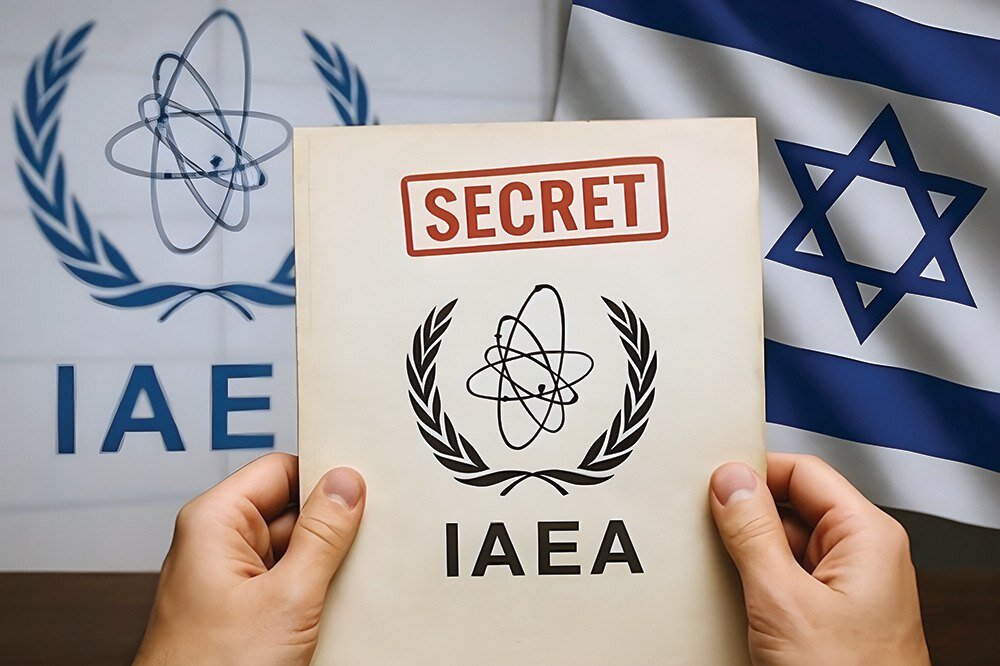Tehran – Israel has long boasted that the region’s intelligence benefits are on its side, claiming its spy and surveillance capabilities are too sophisticated to rival other actors.
The validity of that claim was first raised questioned on October 7, 2023 when Palestinian resistance forces penetrated the occupied territory and violated the heavily strengthened walls that have siege Gaza for the past 18 years. Israel was unable to predict the attack and struggled to respond effectively for several hours, allowing Palestinian fighters to bring prisoners back to Gaza.
The regime’s intelligence reporting agency faced another test last week after Iranian national television announced it had received a large amount of information about Israeli classified by the country. Intelligence Minister Esmaeil Khatib said the successful operation has significantly improved Iran’s “aggressive” capabilities. He said it would take a considerable amount of time to review documents, images and videos obtained by the Ministry. The Tehran Times understands that Iran has acquired confidential data through other ways of operation, as well as direct access within the occupied region.
What is included in the data
Although the extracted information spans a variety of sectors, data relating to the International Atomic Energy Agency (IAEA) is particularly relevant in light of recent increase in agency pressure on Tehran.
Sources speaking to the Tehran Times said Iran discovered a confidential letter it sent to the IAEA within the occupying territories, along with other secret documents belonging to the UN Nuclear Watch Agency regarding its nuclear program.
One source said Iran suspected that Israel had not obtained letters or documents through spying, but received them directly from the IAEA. “Of course, this wouldn’t be too surprising if it proved true,” the source said. “We have long known that the IAEA will serve as a political tool, not a technical organization with legal obligations.”
A report submitted to IAEA member states last month was previously rebuttal by Director Rafael Grossi, who repeatedly filed a rebuttal of allegations regarding Iran’s nuclear activity. This set the stage for the resolution expected at the agency’s annual board meeting during the current session, and was seen as accusing Iran of violating its non-proliferation commitment. Such resolution paves the way for the activation of so-called snapback mechanisms and returns anti-Iran UN sanctions lifted under the JCPOA.
It is unclear whether the newly obtained information will encourage Iran to restrict IAEA testing at its nuclear sites. However, a spokesman for Iran’s Atomic Energy Organization (AEOI) said on Monday that Tehran will reduce its cooperation with the UN’s nuclear watchdog agency before JCPOA level if it does not demonstrate “thank you.”
The IAEA’s intensive testing of Iran’s nuclear sites began under the 2015 nuclear deal. Despite the West’s failure to adhere to its commitment and sanctions re-issues, Tehran allowed IAEA inspectors to remain in the country and continue their work.
“More targets for Iran’s missiles”
Apart from the cozy relationship between the IAEA and Israel, Iran’s successful intelligence news project led to the discovery of the location of a secret nuclear site built by Israel in the occupied territories. In a statement released Monday, Iran’s Supreme National Security Council (SNSC) said it had “targets of Zionist banks.”
“These (hidden) sites will be attacked in response to Israel’s strike against Iran’s nuclear infrastructure,” the statement read. Israeli officials say they will attack Iran’s nuclear sites if indirect negotiations between Tehran and Washington fail to lead to their “dismantling.”
Commenting on the importance of the newly acquired information, the chief commander of Iran’s Islamic Revolutionary Guard Corps (IRGC) said the Islamic Republic can now “more accurately” strike potential targets.
“Undoubtedly, this sensitive intelligence will provide an effort aimed at increasing the accuracy of (potential future) Iran’s missile strikes, with an effort aimed at more effectively accelerating the disappearance of the Zionist regime during the occupation,” Major General Hossein Salami wrote in a message issued Tuesday.
Iran attacked Israeli status in occupying territory twice in 2024 with missiles and drones. The second attack, Operation True Promise II, achieved a success rate of over 80%.
No more has been discovered
When breaking news of the intelligence news business with a statement to National TV, Khatib said that the amount of documents acquired is so immeasurable that “thousands of documents” are a significant understatement compared to those obtained.”
The Tehran Times understands that Iranian authorities have not yet publicly discussed the most important contents of the recovered documents and footage.

